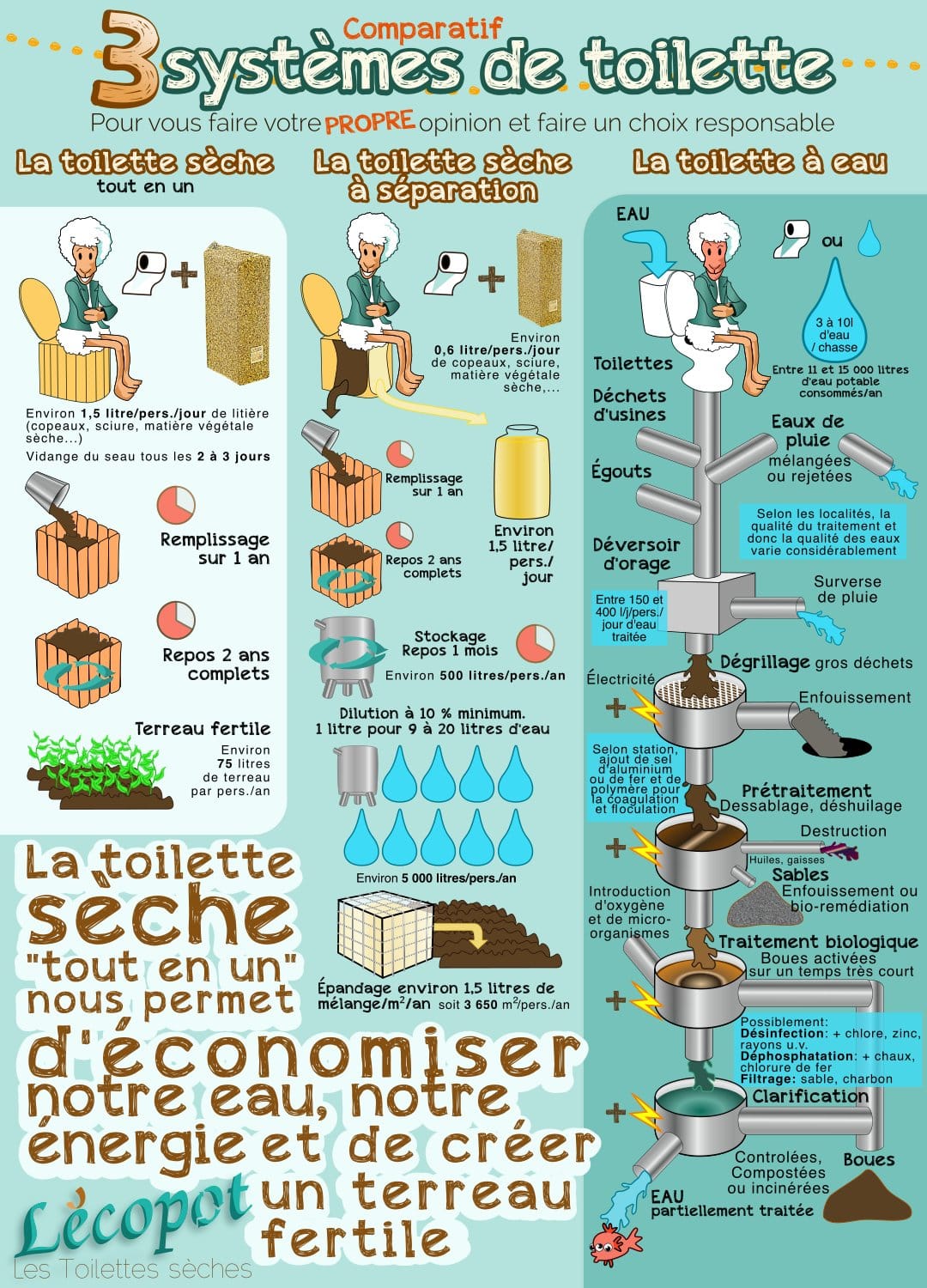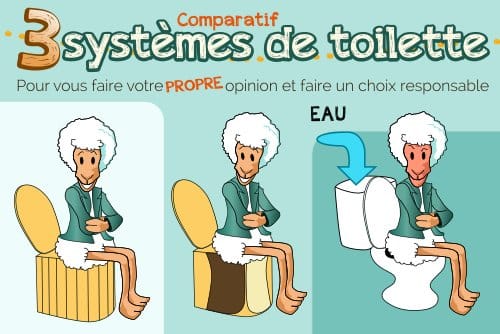Comparison of dry toilets, partition toilets and water toilets
There are many different toilet systems around the world. These differ according to how excrement is disposed of and how it is treated. In this article, we’ve chosen to compare three types of toilet: dry toilets, separating toilets and water toilets.

Why make things complicated when you can make them simple and economical?
Dry toilets
First of all, these toilets can be installed anywhere, as they require no connections (water, drainage, electricity).
Generally speaking, these dry toilets come in the form of a wooden box, and the material is collected in a bucket that must be emptied into the
compost bin
. That’s why it’s important to have a composting area in the garden, or any other place dedicated to composting these materials.
Bio-controlled dry toilets use wood shavings (or other dry plant matter), which are added to the bucket after each toilet flush to balance the compost and stop odors.
The composting cycle for these toilets is 2 years. This is the time needed to sanitize the compost and eliminate all pathogens.
You can then use this potting soil to fertilize the soil and all the plants in your garden.
With bio-controlled dry toilets, the cycle is complete.
Everything returns to the earth, with no inputs or energy other than the cycle of life!
Separating dry toilets
As the name implies, the principle of the separating toilet is to separate urine from faeces and use them separately or not!
In fact, there are different separation practices.
Basically, a toilet looks the same as a dry toilet – it’s only the inside that changes. Most separating systems require the user to be seated, as urine is collected on the front part of the toilet. For the rest of the commissions, they will be received in a bucket in the rear area or directly into a composting chamber.
Faecal matter can be composted in the same way as dry toilets, and urine can be used as fertilizer in the garden, provided it is diluted with water and spread over a sufficiently large area so as not to “burn” the plants.
Urine can also be put back into the composter for a better balance (the carbon/nitrogen ratio.) or channelled into the sewage system, which is of little interest, ecologically speaking.
From do-it-yourself to advanced models, there are many models to choose from, with varying degrees of complexity, ingenuity and technical sophistication.
Water toilets
This type of toilet is the most widespread in Western society.
To get rid of all traces of our dejecta, we thought it would be a good idea to use water to transport them to ultra-perfect treatment centers (well, not all of them, anyway…) to be treated, filtered, decanted…, to try to get the water back to a state of near-cleanliness so that it can be discharged into rivers and then pumped again to be re-treated so that it can be returned to the tap or flushed down the toilet… Phew! What a journey, just for a little poo!
Between the installation in our homes and the underground connections that we are unaware of, the energy required (chemical and electrical treatment, etc.) is immense.
What’s more, in the end, the sludge recovered from this “sanitation” will either be incinerated or spread on fields, even though it won’t have had time to compost.
This high-speed, energy-intensive practice means that this highly fertilizing material cannot be properly recycled.
Conclusion
This little comparison shows just how simple or complex the management of our dejecta can be.
These days, we’re being warned that the world is going to the dogs, so why not shake things up, change our habits and ask ourselves a few simple questions about cleaning up our excreta and putting it to good use?
Reducing or stopping our consumption of water for toilets and creating fertile soil for our land is a no-brainer!
Sure, there’s something for everyone, but at what price?
